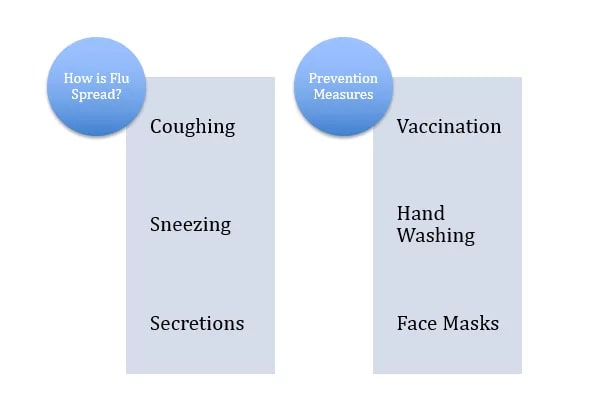7 Facts of the Flu (2017-18 Influenza Update)
- Category: News and Updates
- Posted On:

Joshua Strommen MD, FACEP
Influenza A and B are the two strands of virus that cause the coughing, aching, feverish, nauseating, head pounding constellation of symptoms we refer to as the “flu”. Influenza is a virus that infects the upper and lower airway and is predominately seen during the winter months from November to March.

Symptoms of Influenza
- Fever (Temp > 100.4 F)
- Cough
- Sore Throat
- Nasal Discharge
- Weakness
- Muscle Aches
- Headache
- Nausea & Vomiting
Is Influenza a dangerous illness?
- Typically, influenza is a self-limiting virus, which means you will improve in 5-7 days with no complications.
Influenza can be more dangerous if
- Age over 65
- Age < 2
- You have Asthma, COPD, heart disease, diabetes, or kidney problems
- You are pregnant
What is the potentially serious complication of Influenza?
- Pneumonia
How is Influenza treated?
- If diagnosed within 48 hours of symptom onset, you may be given Tamiflu. Tamiflu is known to shorten your duration of symptoms by 1 day.
- Acetaminophen, Ibuprofen, oral fluids, and other symptomatic medicines are perfectly reasonable for treatment of flu symptoms.
2017-2018 Flu Facts

- It is impossible to predict how severe of a flu season we will have.
- The flu vaccine will protect against 3 or 4 different flu viruses, depending on the vaccine makeup itself.
- The antibodies made from receiving the flu vaccine will help fight any flu virus your body is exposed to, even if the vaccine isn’t a perfect match for the predominant flu strain that is circulating this year.
- It is possible to still get the flu even if you get a flu shot. This occurs because either the vaccine wasn’t specific for the predominant flu strain that is circulating, or you were exposed to the flu before your body made the antibodies to protect itself.
- We still recommend a flu shot even if you had one last year because your previous antibodies will have decreased effectiveness.
- The CDC is still not recommending the nasal flu spray because of its ineffectiveness. The injectable flu shots are the only option this season.
- You should have your flu vaccine by the end of October for optimal effectiveness. It takes 2 weeks for your body to make appropriate antibodies.
How can PremiER help you?
- We can test for Influenza easily and quickly!
- If your symptoms last longer than 5-7 days come see us for an evaluation.
- If you have progressively worsening shortness of breath, chest pain, or significant weakness, being seen sooner rather than later is best!
